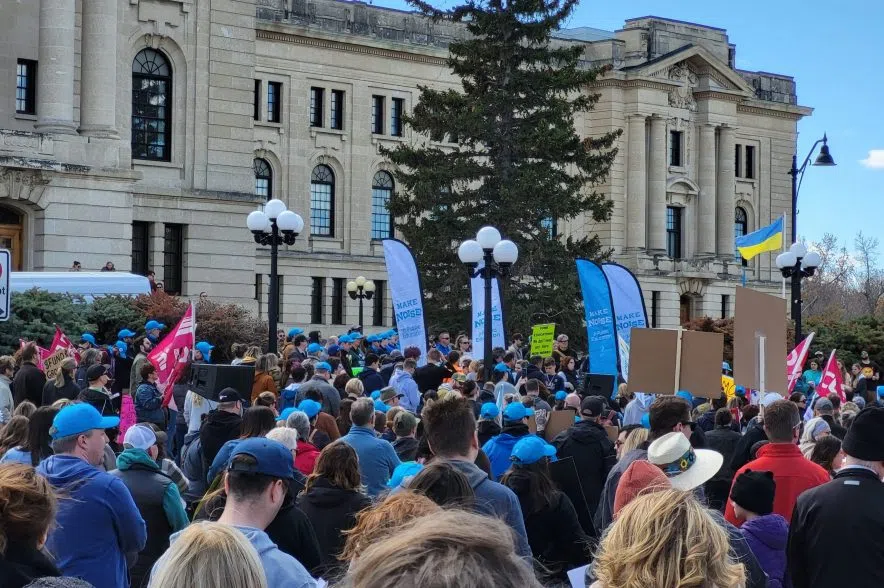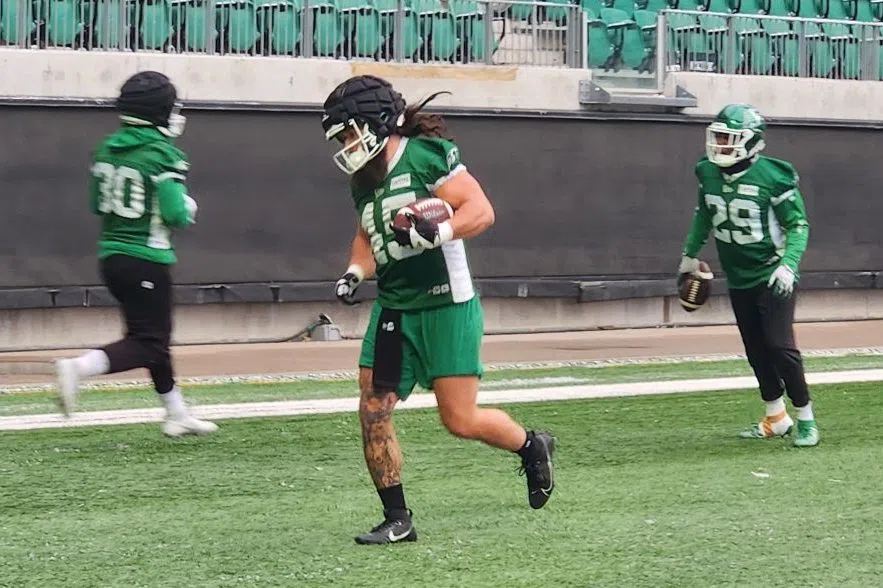Saskatchewan teachers are mulling over the latest offer from the provincial government, but there seems to be some daylight between how the two sides view the offer.
The Government-Trustee Bargaining Committee (GTBC) is saying there’s a tentative agreement, but the Saskatchewan Teachers’ Federation (STF) said it received a “final offer” from the government.
According to Saskatoon-based labour lawyer Steve Seiferling, there isn’t much of a difference between the two.
“It’s funny because those terms are not mutually exclusive. There’s not necessarily a conflict,” Seiferling told The Evan Bray Show on Friday. “So ‘tentative agreement,’ all that would mean is that the union has agreed to take this to their members for a vote.”
Seiferling, a labour and employment lawyer with Seiferling Law, said what is important isn’t the semantics but whether or not the STF recommends its members vote in favour of the offer.
According to an STF media release, the GTBC is offering a three-year agreement that provides a three per cent salary increase in Year 1, a three per cent increase in the second year, and a two per cent increase in Year 3 along with retroactive pay to September 2023.
Seiferling said the STF can recommend the offer to its members, recommend they vote against it, or try to stay neutral.
He also said the teachers’ federation doesn’t have an obligation to take the matter to a vote.
He explained there’s a mechanism in Saskatchewan where an employer or even a large enough group of employees could ask the labour board to force a vote.
However, he said the measure could only be used once in a round of collective bargaining.
Seiferling said the STF has many options, but he would be surprised if it chose to go with a full withdrawal of services.
“When you withdraw services in the education context … the pressure is not on government, the pressure is on parents and students,” he said.
“So a full withdrawal doesn’t accomplish much and if there was a full withdrawal, I suspect we might see back-to-work legislation fairly quickly to preserve graduation for some of the students that are finishing their final years or to make sure that they get their exams in.”
He said a legislated return to work would comply teachers to go back to “full” work and not work to rule.
Seiferling said the STF has done a good job of raising awareness about the issues of classroom size and complexity, although he doesn’t believe they should be addressed in collective bargaining agreements.
“It is going to be front of mind for a lot of people and education is one of those things that we value heavily,” he said.
Members of the STF are to vote on the government’s offer on May 8 and 9.







